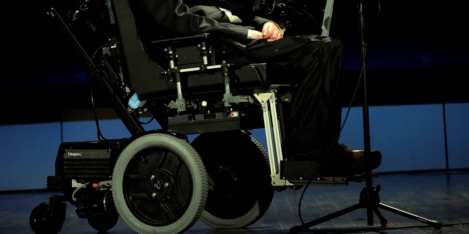To provide the best experiences, we use technologies like cookies to store and/or access device information. Consenting to these technologies will allow us to process data such as browsing behaviour or unique IDs on this site. Not consenting or withdrawing consent, may adversely affect certain features and functions.
The technical storage or access is strictly necessary for the legitimate purpose of enabling the use of a specific service explicitly requested by the subscriber or user, or for the sole purpose of carrying out the transmission of a communication over an electronic communications network.
The technical storage or access is necessary for the legitimate purpose of storing preferences that are not requested by the subscriber or user.
The technical storage or access that is used exclusively for statistical purposes.
The technical storage or access that is used exclusively for anonymous statistical purposes. Without a subpoena, voluntary compliance on the part of your Internet Service Provider, or additional records from a third party, information stored or retrieved for this purpose alone cannot usually be used to identify you.
The technical storage or access is required to create user profiles to send advertising, or to track the user on a website or across several websites for similar marketing purposes.
 People don’t actually know themselves very well
People don’t actually know themselves very well






 Work is no longer a place but a set of activities which lead to a set of outcomes that could be delivered anywhere. Or as John Blackwell, Quora Consulting’s Managing Director succinctly described it at the first of the 2018 Quora Smartworking Summit’s held last week, organisations need to create a ‘smart everywhere’ environment. New digital platforms make far it easier for people to work in exactly the way they want. Research by Quora has revealed that there are 5 million people currently working in the UK gig economy or around 15.6 percent of the total workforce. More people are working post retirement age and want to work in a way that they can control, while there are increasing numbers who simply want more autonomy in their lives in the way that self-employment can offer.
Work is no longer a place but a set of activities which lead to a set of outcomes that could be delivered anywhere. Or as John Blackwell, Quora Consulting’s Managing Director succinctly described it at the first of the 2018 Quora Smartworking Summit’s held last week, organisations need to create a ‘smart everywhere’ environment. New digital platforms make far it easier for people to work in exactly the way they want. Research by Quora has revealed that there are 5 million people currently working in the UK gig economy or around 15.6 percent of the total workforce. More people are working post retirement age and want to work in a way that they can control, while there are increasing numbers who simply want more autonomy in their lives in the way that self-employment can offer. 


 Over a third of UK employees (37 percent) have felt discriminated against in the workplace, more than one in ten (12 percent) believe they have suffered age discrimination and 8 percent feel they’ve been discriminated against due to their gender. This rises to 11 percent amongst women, claims a new study of 1,300 working adults by ADP. The study also suggests that standards and perceptions of behaviour have shifted across the generations, with those in so-called ‘Generation Snowflake’ more sensitive to unfair treatment than their more mature colleagues. According to the findings, half (50 percent) of those under 35 say they have felt discriminated against, compared to just a quarter (26 percent) of those over the age of 45. The contrast is visible across both age (15 percent vs 14 percent), gender (11 percent vs 5 percent) and other types of discrimination.
Over a third of UK employees (37 percent) have felt discriminated against in the workplace, more than one in ten (12 percent) believe they have suffered age discrimination and 8 percent feel they’ve been discriminated against due to their gender. This rises to 11 percent amongst women, claims a new study of 1,300 working adults by ADP. The study also suggests that standards and perceptions of behaviour have shifted across the generations, with those in so-called ‘Generation Snowflake’ more sensitive to unfair treatment than their more mature colleagues. According to the findings, half (50 percent) of those under 35 say they have felt discriminated against, compared to just a quarter (26 percent) of those over the age of 45. The contrast is visible across both age (15 percent vs 14 percent), gender (11 percent vs 5 percent) and other types of discrimination.










 Demand for labour is likely to remain relatively strong in the near-term which is one of the main reasons why employers support a national approach to tackling the UK’s skill and labour shortages post-Brexit, in comparison with a regional or sectoral one. According to the latest quarterly Labour Market Outlook from the CIPD and The Adecco Group the preference for a national labour or skills shortage occupation scheme reflects the main reason given by organisations for employing EU nationals, which is that they have difficulty finding local applicants to fill lower skilled roles, as cited by 18 percent of employers. The national survey of more than 2,000 employers found that the relative majority of employers (41 percent) would prefer a UK-wide immigration system that is based on national labour or skill shortage occupations in the likely event of migration restrictions once the UK leaves the European Union. In contrast, around one in ten (13 percent) favour a sector-based policy and just 5 percent would back a regional policy.
Demand for labour is likely to remain relatively strong in the near-term which is one of the main reasons why employers support a national approach to tackling the UK’s skill and labour shortages post-Brexit, in comparison with a regional or sectoral one. According to the latest quarterly Labour Market Outlook from the CIPD and The Adecco Group the preference for a national labour or skills shortage occupation scheme reflects the main reason given by organisations for employing EU nationals, which is that they have difficulty finding local applicants to fill lower skilled roles, as cited by 18 percent of employers. The national survey of more than 2,000 employers found that the relative majority of employers (41 percent) would prefer a UK-wide immigration system that is based on national labour or skill shortage occupations in the likely event of migration restrictions once the UK leaves the European Union. In contrast, around one in ten (13 percent) favour a sector-based policy and just 5 percent would back a regional policy.
 A third of workers (32 percent) regularly struggle to be productive in their job, and one in six (16 percent) blame their manager – claims a new survey from ADP. This puts bad management ahead of inefficient systems and processes (15 percent) and staff shortages (13 percent) as the biggest drain on productivity in the UK workplace. The UK has been grappling with low productivity levels for a number of years, consistently placed behind other leading economies, such as Germany and the US in official productivity tables. While recent ONS figures suggested a recovery is underway, reporting
A third of workers (32 percent) regularly struggle to be productive in their job, and one in six (16 percent) blame their manager – claims a new survey from ADP. This puts bad management ahead of inefficient systems and processes (15 percent) and staff shortages (13 percent) as the biggest drain on productivity in the UK workplace. The UK has been grappling with low productivity levels for a number of years, consistently placed behind other leading economies, such as Germany and the US in official productivity tables. While recent ONS figures suggested a recovery is underway, reporting 







March 15, 2018
What the Chancellor’s Spring Statement means for the employment landscape
by Oliver Shaw • Comment, Workplace
(more…)